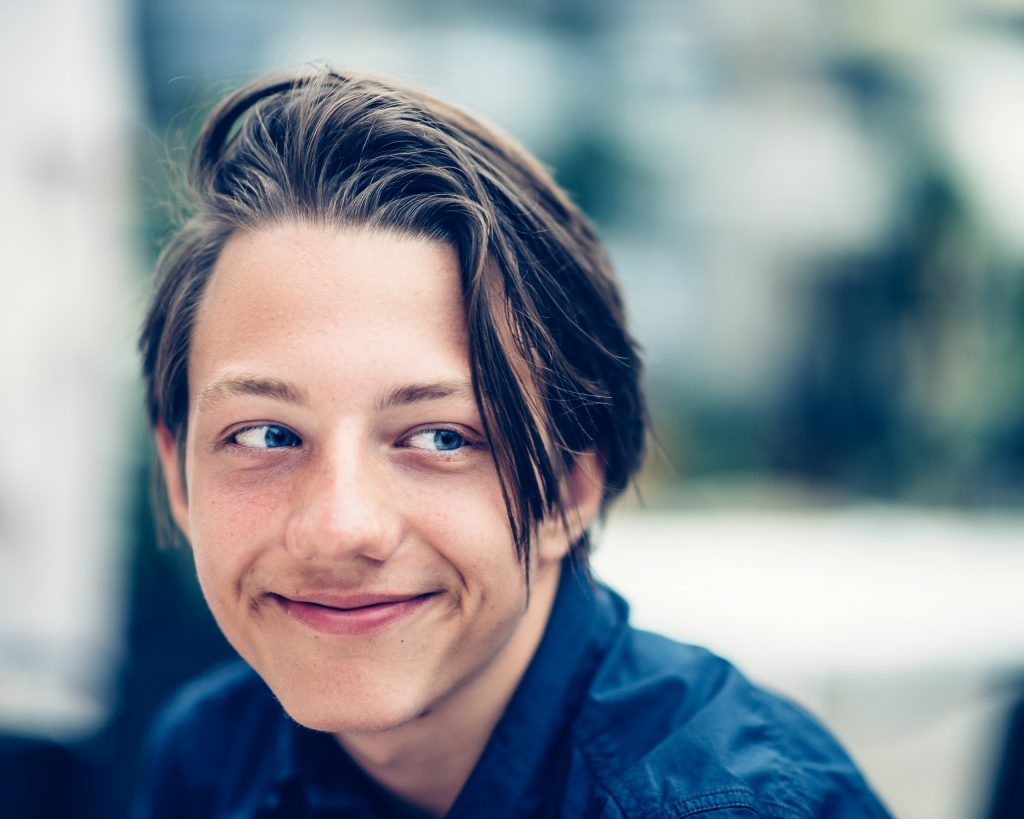What Do You Call Young People in Russian? Posted by Maria on Jun 3, 2019 in language, Vocabulary
There are several ways of referring to young people in Russian, some more informal than others. This post will help you learn some common ones and when each is normally used.
Де́вушка
This popular word refers to a young woman. Note that де́вушка should not be confused with де́вочка, girl. Unlike in English, where calling a young woman past childhood a “girl” is seen as disrespectful, Russian young women may not be so keen on being called “же́нщина” (woman) because that word may sound middle-aged or matronly. Of course, each person’s preferences are unique, so you may want to listen to what women say about themselves or each other before deciding on a term.
Вско́ре геро́й сно́ва встреча́ет де́вушку, в кото́рую влюблён, хотя́ она́ об э́том не по́мнит. [Джим Кэрри — изнутри и снаружи (2004) // «Экран и сцена», 2004.05.06]
The character meets the woman he loves again, even though she doesn’t remember that.
Де́вушка may be used to talk about a young woman (approximately mid-teens to early 30s) in the third person or to address a female stranger.
А вы, де́вушка, отку́да? [Юрий Кузьменко. Правда семьи Оласаблей (1997) // «Столица», 1997.06.17]
Where are you from, miss?
However, groups of female friends may call each other де́вочки, and age does not really matter in these situations — the “girls” may be in their 50s or 60s!
Де́вочки, у кого́-нибу́дь есть хоро́ший репети́тор по англи́йскому? [Наши дети: Подростки (2004)]
Ladies, does anyone have a good English tutor?
Finally, де́вушка may mean “girlfriend” or “romantic partner,” especially when used with a possessive pronoun.
С той свое́й де́вушкой, не по́мню и́мени, он давно́ расста́лся. [Алексей Слаповский. 100 лет спустя. Письма нерожденному сыну // «Волга», 2009]
He has long broken up with that girlfriend; I don’t remember her name.
Па́рень
Па́рень is a somewhat informal word used for a young man.
Одна́жды пришёл сла́вненький, светловоло́сый, на Есенина похо́жий па́рень, засте́нчиво попроси́л посмотре́ть тетра́дочку со свои́ми стиха́ми. [Виктор Астафьев. Затеси (1999) // «Новый Мир», 2000]
Once, a nice, fair-haired guy who looked like Yesenin came by and shyly asked me to read a notebook with his poems.
Па́рень combined with a possessive adjective can refer to someone’s boyfriend.
Паца́н
Паца́н is a word for a young boy, and this word is a bit more colloquial. It can sometimes convey a lack of respect or emphasize the person’s young age. Sometimes you can heard the female form, паца́нка, which definitely comes across as dismissive.
Вчера́ ходи́ли с на́шими пацана́ми дра́ться в сосе́дний двор. [Андрей Геласимов. Нежный возраст (2001)]
Yesterday the lads and I went next door for a fight.
Чува́к
This word is quite informal — in fact, it was used as an equivalent of “dude” when The Big Lebowski came out in Russia. Чува́к is a slang word and may be jarring or confusing for older people. It may refer to any man but usually refers to younger people.
А пото́м Леннона уби́л чува́к, начита́вшийся «Над про́пастью во ржи». [Игорь Мальцев. Музыка (2002) // «Автопилот», 2002.05.15]
Afterwards, Lennon was murdered by a dude who’d read too much The Catcher in the Rye.
The female counterpart, чуви́ха, is a bit less common.
Кент
Finally, кент is another slang word for a young man, which may not be understood by all speakers.
Во́зле воро́т како́й-то кент вози́лся ря́дом со свои́м «Фольксва́геном». [Алексей Рыбин. Последняя игра (2000)]
Some fellow by the gate nearby was tinkering with his Volkswagen.
Have you read or heard these words? Do you use any of them in speech?

Build vocabulary, practice pronunciation, and more with Transparent Language Online. Available anytime, anywhere, on any device.






